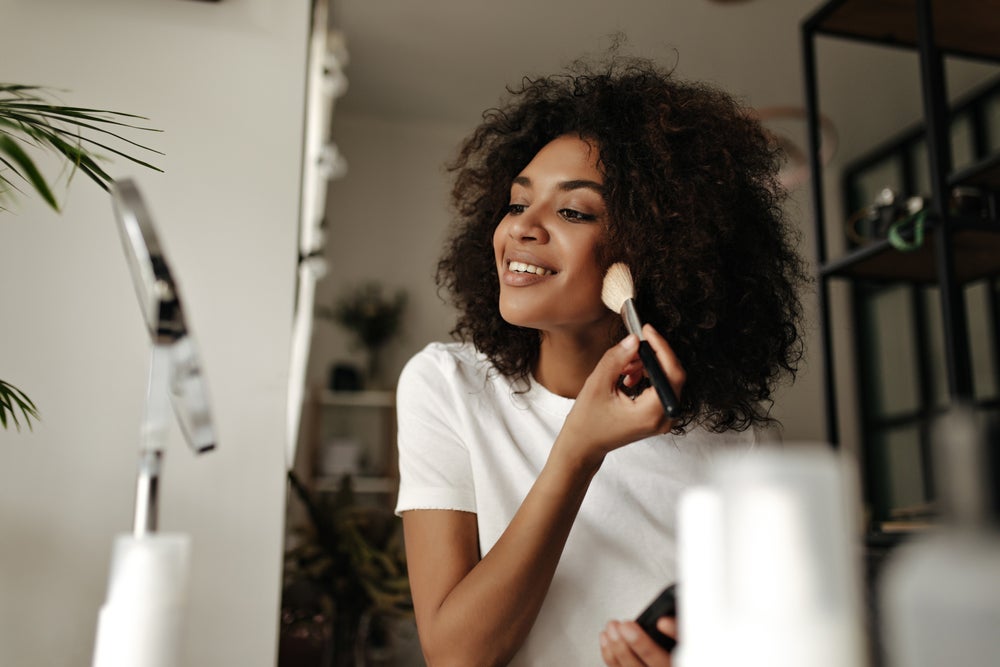
The hospitality industry is witnessing a trend of hotel facelifts, and it’s not just the physical renovations. Minibars, traditionally stocked with crisps and beer, are now undergoing a makeover of their own by offering beauty products to guests.
This shift reflects the growing demand for wellness and self-care experiences within the hotel industry.

Discover B2B Marketing That Performs
Combine business intelligence and editorial excellence to reach engaged professionals across 36 leading media platforms.
Equinox Hotels in New York City has taken the lead in this transformation by introducing RoomBar, a one-stop shop for beauty products and nutritional supplements in guest rooms.
With a wide selection of up to 80 items, including standard snacks and beverages, RoomBar has become a revenue-generating highlight. Ara Patterson, vice-president of food and beverage and spa at Equinox Hotels, reveals that beauty products alone contribute 60% of RoomBar’s revenue.
This shift in revenue is a testament to the rising significance of beauty products in the hospitality sector. On average, RoomBar generates a monthly revenue of around $55,000.
Partnerships and collaborations enhance the experience
Equinox Hotels has partnered with renowned New York City-based plastic surgeon Lara Devgan to offer facials at its spa. The luxury French skincare brand Biologique Recherche has also made its products available in both the spa and RoomBar.

US Tariffs are shifting - will you react or anticipate?
Don’t let policy changes catch you off guard. Stay proactive with real-time data and expert analysis.
By GlobalDataThis collaboration enhances the overall guest experience and ensures a premium selection of beauty offerings.
The boutique Jasper Hotel in Fargo, North Dakota, without a spa of its own, has found a unique way to provide relaxation opportunities with a local touch. Emily Olsen, director of lifestyle at the hotel, emphasises the importance of bringing a local feel into the guest experience.
Olsen has collaborated with Fargo to create a co-branded range using Eminence products. The minibar Prairie Glow kit offers guests a multi-step skincare routine with detailed instructions. Priced at $30 per kit, it provides an affordable alternative to a traditional trip to the spa.
The Thompson Hotel in Austin, Texas, has taken the concept of wellness upsells to the next level by integrating technology. Guests can now scan QR codes to access online ordering for wellness products and experiences.
The mini-bar offers a Seven-Minute Makeover Mask from Skin Authority for $15, while the suites provide an ATX Chill Skin Kit at a higher price point. The skin kit includes a QR code that grants access to a pre-recorded instructional video.
Guests can follow step-by-step guidance from a coach or even opt for a live personal instruction session. The Thompson initiative resonates with Austin’s reputation as a vibrant party city, offering a “detox”-like experience to its guests.
Minibar beauty programmes thriving
The response to minibar beauty programmes has been overwhelmingly positive.
The Thompson Hotel in Austin is considering expanding its range of beauty products and skin kits in all room categories, but the managing director, Nate Hardesty, highlights the need for more sales data before making significant investments.
Hardesty believes that approachable prices, around the $15 range, create a sweet spot for minibar extras such as beauty products. Guests find it worthwhile to spend a few extra dollars for an enriching experience, especially compared to the high prices of traditional minibar offerings.
Casa Ciprani in New York City sees minibar beauty as an upselling opportunity for its on-site spa. The pilot in-room programme offers guests a mask and a travel-sized detox eye-brightening rollerball oil, chilled in the fridge for a cooling effect on puffy areas.
QR codes have been introduced to enhance the programme, providing information about the beauty brands used and introducing guests to spa specialists who personalise and humanise the experience.
Guests who try the oil in their rooms are more likely to be intrigued and visit the spa for a full grow-and-glow facial.
Ultimately, the success of minibar beauty programmes depends on guests with higher budgets and specific preferences. Hotels like Casa Ciprani, with room rates starting at $600, cater to luxury-seeking guests, while the more affordable Tommie Austin, priced at $200 per night, also offers minibar beauty experiences.
By understanding their target audience and tailoring the offerings accordingly, hotels can provide a personalised and indulgent experience to guests.
Innovative approaches to minibar offerings
Some hotels have taken a different approach to minibar offerings to cater to changing guest needs. The Thompson in Austin replaced traditional dorm refrigerators with snacks and drinks with the aim of providing guests with more space.
They now offer an energy-efficient mini fridge and have introduced the concept of the Bankside Boutique. Each floor of the Bankside Hotel in London features a variety of Charlotte Tilbury face masks for guests to choose from, along with champagne, creating the ultimate treat-yourself experience.
With the hospitality industry’s increasing emphasis on wellness and self-care, the transformation of minibars into beauty product hubs reflects the changing expectations of guests.
By offering a range of beauty products and collaborating with spa specialists and local businesses, hotels can provide unique and memorable experiences that cater to the growing demand for self-pampering and relaxation during travel.





